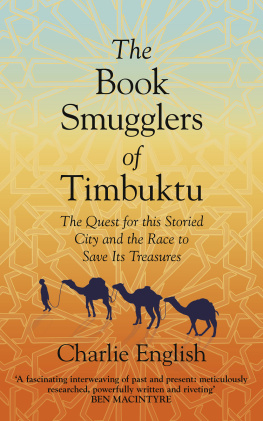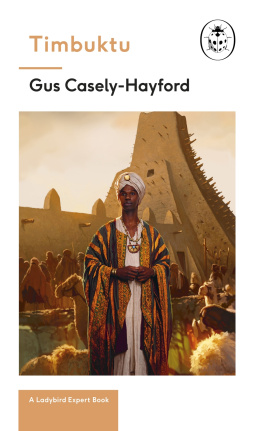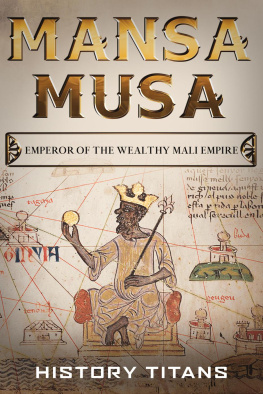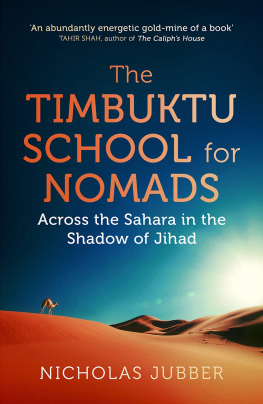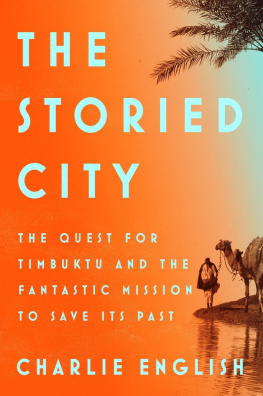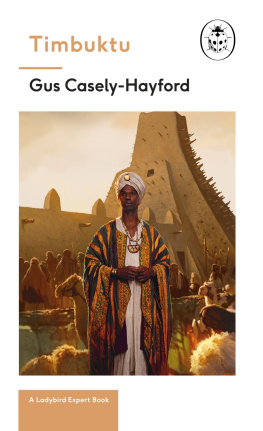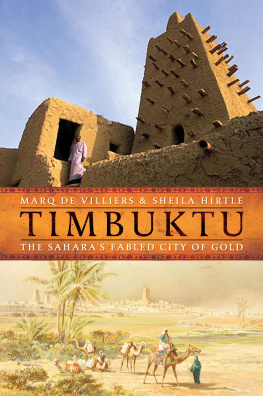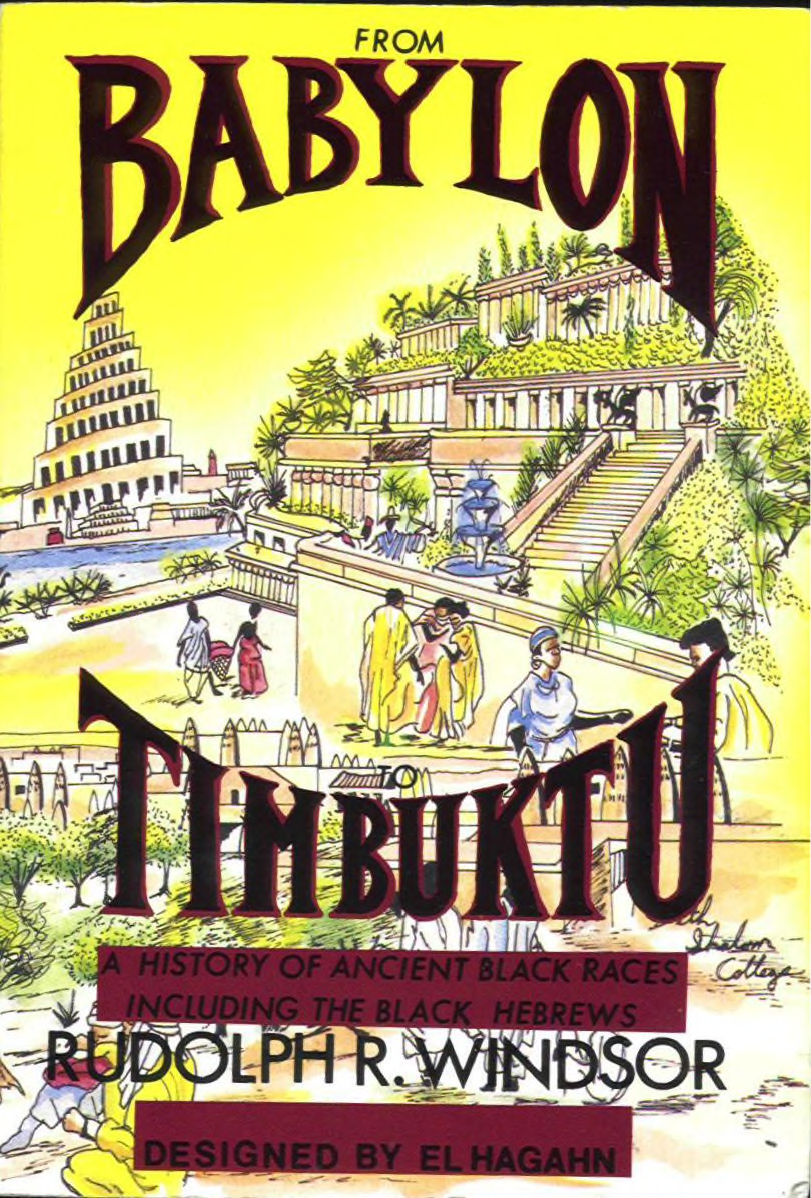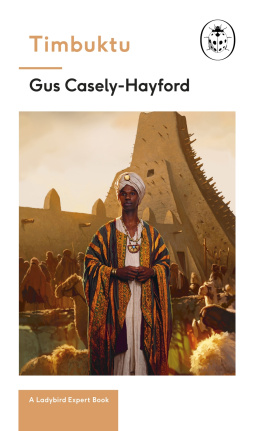Contents

Charlie English is the former head of international news at the Guardian. A fellow of the Royal Geographical Society and author of a previous book, The Snow Tourist, he first journeyed to Africa at nineteen, and has travelled widely there and elsewhere around the globe. He lives in London.
William Collins
An imprint of HarperCollinsPublishers
1 London Bridge Street
London SE1 9GF
www.WilliamCollinsBooks.com
This eBook first published in Great Britain by William Collins in 2017
Copyright 2017 by Charlie English
Maps by Meighan Cavanaugh
Frontispiece: Nineteenth-century drawing of Timbuktu, based on a description by the French explorer Ren Cailli
Charlie English asserts the moral right to be identified as the author of this work
A catalogue record for this book is available from the British Library
While the author has made every effort to provide accurate Internet addresses at the time of publication, neither the publisher nor the author assumes any responsibility for errors, or for changes that occur after publication. Further, the publisher does not have any control over and does not assume any responsibility for author or third-party websites or their content.
All rights reserved under International and Pan-American Copyright Conventions. By payment of the required fees, you have been granted the non-exclusive, non-transferable right to access and read the text of this e-book on-screen. No part of this text may be reproduced, transmitted, down-loaded, decompiled, reverse engineered, or stored in or introduced into any information storage and retrieval system, in any form or by any means, whether electronic or mechanical, now known or hereinafter invented, without the express written permission of HarperCollins
Source ISBN: 9780008126636
Ebook Edition May 2017 ISBN: 9780008126643
Version: 2017-04-18
For Lucy

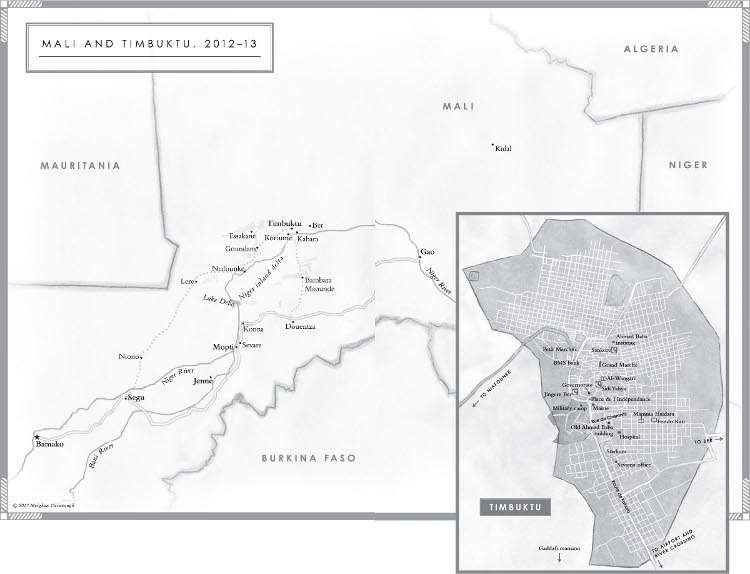

I n among the millions of documents held by the British governments National Archives is a slim dossier known as CO 2/20. The volume is not much requested. These archives, after all, hold papers that cover a thousand years of British history, and most visitors to the airy reading rooms at Kew come in search of more obvious treasures: Domesday Book, Shakespeares will, or the newly opened files of cold war traitors and spies. Every couple of years, however, someone will demand Colonial Office file 2/20, and a message will be passed to the Cheshire town of Winsford, where the dossier is held in a storage facility deep within Britains largest salt mine. There, an employee will venture into the arid darkness, pluck the file from more than twenty-two miles of shelving given over to the National Archives, and dispatch it south.
The box that arrives days later at the reading room is made of thick cardboard and bound with white cotton tape. Inside is a sheaf of a hundred or so handwritten communicationsmanuscripts, we might saythat were sent from the British consul in Tripoli to London in the mid-1820s. Each piece of ragged, well-traveled paper illuminates a small corner of time and place, and a handful have special relevance for our story. These are the last letters of a neglected explorer, Alexander Gordon Laing, and encompass the period of his expedition to discover the far famed Capital of Central Africa, as he described the city of Timbuktu.
Laing, a muttonchopped army major from Edinburgh, was fated to become the first European explorer to reach this elusive place. In the 1820s, Timbuktu dominated Europes ideas about Africa as El Dorado had once colored its concept of the Americas. Timbuktu was believed to govern a rich sub-Saharan region called the Sudan, after the Arabic Bilad al-Sudan, the land of the blacks. Rumors of the citys existence had circulated in Europe for hundreds of years, and its riches had been trumpeted since at least the fourteenth century. As Marco Polos Zipangu was said to be a land where the kings palace was roofed with precious metal, Timbuktus houses too were reported to be covered with gold. Scores of travelers had been sent to find it, but every attempt had ended in death or failure.
In 1826, it was the turn of Major Laing. Laing was a particular British sort, a product of that time between Waterloo and the Charge of the Light Brigade when military men sought death or glory, or a combination of the two. With his good looks and self-absorption, he could have slipped out of the pages of Vanity Fair, but it was a different novel, Daniel Defoes Robinson Crusoe, that inspired his life of adventure. The reading of voyages and travels occupied all my leisure moments, he once recalled. The History of Robinson Crusoe inflamed my young imagination. Like Defoes hero, Laing was desperate to avoid the middle station of British life; like Crusoe he would cast himself into the world in order to find meaning and purpose. I shall do more than has ever been done before, he wrote, and shall show myself to be what I have ever considered myself, a man of enterprise and genius.
Not everyone shared Laings immodest assessment of his abilities. While he was stationed in Sierra Leone in 1824, his commanding officer wrote to the minister for war and the colonies that Laings military exploits were [even] worse than his poetry. But this diatribe apparently had little effect; that year Laing was appointed leader of a new British mission to locate the city he believed it was his destiny to find. Becoming the first to reach Timbuktu would give him what he most desired in the world, as he explained in a poem:
Tis that which bids my bosom glow
To climb the stiff ascent of fame
To share the praise the just bestow
And give myself a deathless name.
Laing set out from Tripoli in the summer of 1825, riding into the 120-degree heat of the Sahara. The land at this time of year was so arid even his camels grew skeletally thin. His guide, a mild and agreeable presence on the coast, became greedier the farther south they traveled, and in the Tanezrouft, a burning plain the size of California, he appears to have betrayed Laing to a group of Tuareg. Heavily armed men surrounded the explorers tent in the night, shot him, and hacked at him before leaving him for dead. Laings account of the injuries he sustained in this attack is one of the most remarkable artifacts in the Colonial Office dossier. It was written on May 10, 1826, from a desert camp two hundred miles north of Timbuktu. Until this point, his dispatches were composed in a flamboyant, forward-leaning copperplate. This letter, dotted with mildew now, its folded seams darkened by Saharan dust, is an untidy up-and-down scrawl, written, as he explained, with his left hand.
My Dear Consul, he writes, I drop you a line only, by an uncertain conveyance, to acquaint you that I am recovering from severe wounds far beyond any calculation that the most sanguine expectation could have formed. The detail of the incident is a surprising tale of base treachery and war, but it must keep for another time. For now, he will acquaint the consul with the number and nature of the wounds he has suffered in the attack:
Next page
